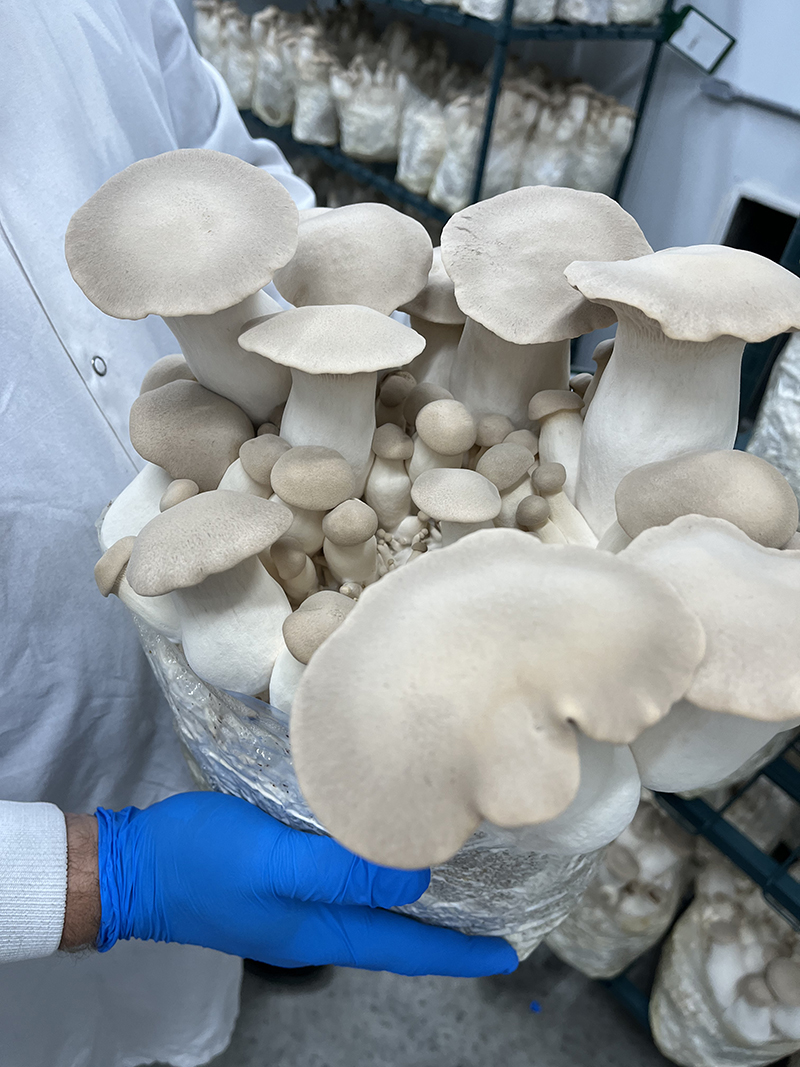Fungi feats: How Smallhold is banking on sustainably grown mushrooms to captivate shoppers
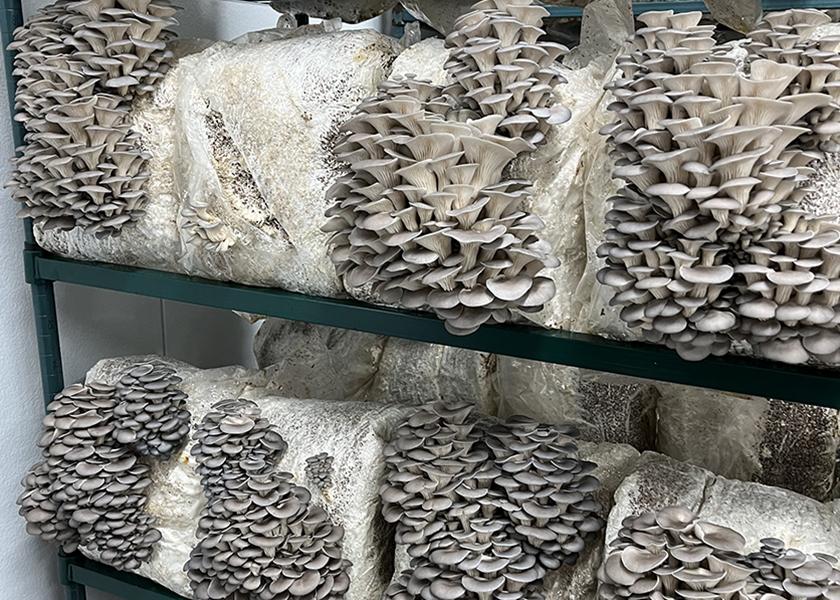
Pulling into a nondescript office park just south of Austin, Texas, I stepped out of my dusty Prius and tried not to wince as I was greeted by the warmth of the hot sun on the back of my neck. Central Texas is not what most reasonable farmers would call a hospitable place to grow produce in the summer because of the scant rainfall and blistering temps that test the resilience and durability of air conditioning systems every August.
But this day I had an appointment to see firsthand a thriving farm growing tons of gorgeous produce in the middle of a scorching July in Texas.
Indoor specialty mushroom grower Smallhold has accomplished this feat three years and counting, growing a wild array of mushrooms year-round in its Austin facility for a growing list of customers that includes Central Market, Sprouts Farmers Market and Whole Foods Market.
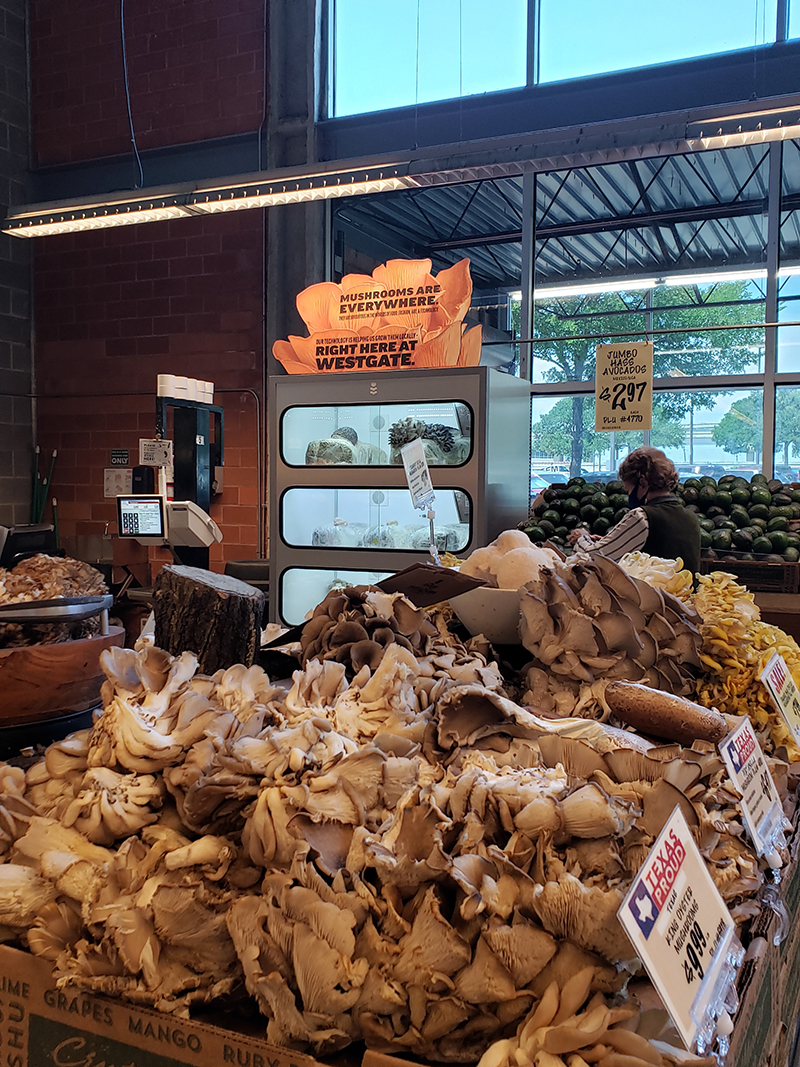
Stepping out of the heat and into the cool, clean mushroom farm facility, I met Smallhold Impact Manager Travis Breihan. The Texas native guided me through each step of Smallhold’s mushroom cultivation, showing me the farm’s many grow chambers where substrate fosters mycelium that grows what is eventually recognizable as exotic varieties of culinary mushrooms.
“The beauty of mushrooms is that they [look] otherworldly, but they are of this world,” said Breihan as he took me into the first of many grow chambers, designed like spacious walk-in refrigerators, where mushrooms sprouted in row after row of clusters. “When we were hunter-gatherers, we were definitely foraging mushrooms. To be able to have that connection in a Central Market today — to be able to grab a whole cluster of mushrooms and cook with them — is really special.”
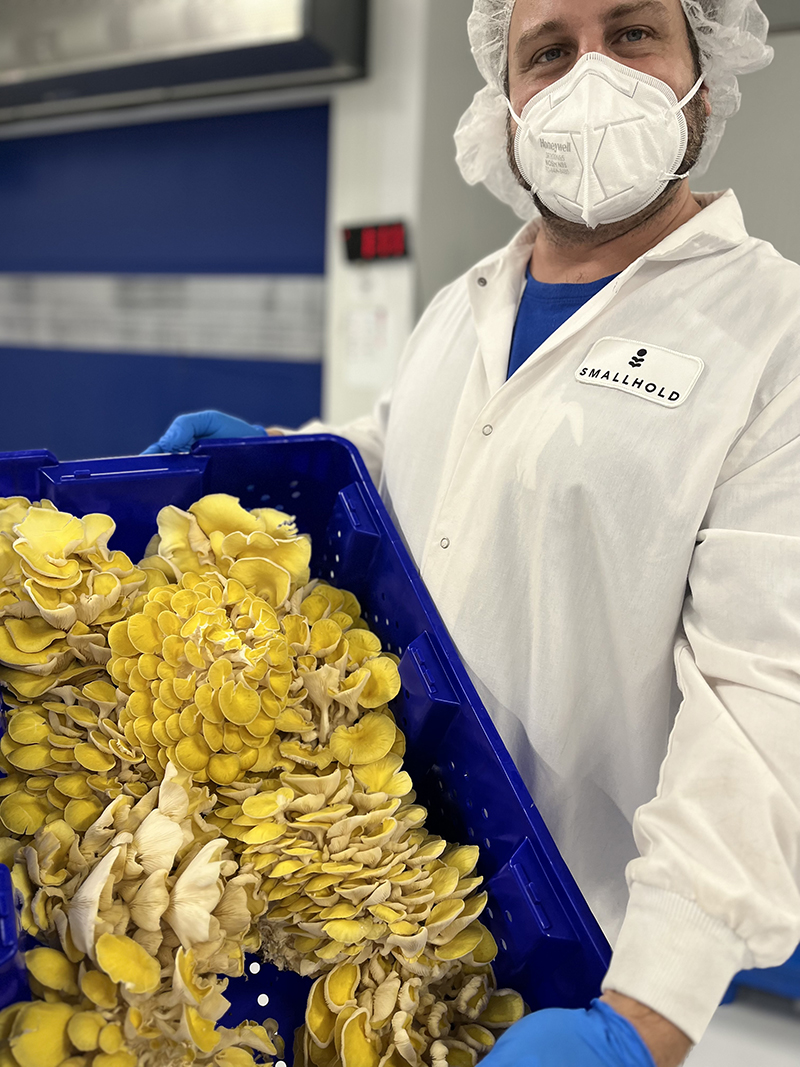
Setting up shop across the U.S.
Began in Brooklyn, N.Y., in 2017, growing specialty mushrooms in aquarium-like microfarms tucked into produce departments and restaurant spaces, Smallhold has steadily built on its ambitious and unique business model, establishing three large macrofarm facilities in New York, Los Angeles and Austin.
Placement of this trio of farm facilities across the U.S. is by design, Breihan said. The goal is narrow the number of miles the mushroom travels as much as possible.
“Our mushrooms have about a 10-day shelf life, sometimes two weeks, but 10 days is kind of like the ‘Goldilocks zone,’” he said. “We grow our mushrooms as close to the customer as possible; we really want to reduce that supply chain.”
Eschewing the common white button and crimini mushrooms, Smallhold cultivates boutique varieties like yellow and blue oysters, lion’s mane and trumpet mushrooms. These eye-catching darlings of the fungi world are higher maintenance to ship, but Breihan says it’s worth it.
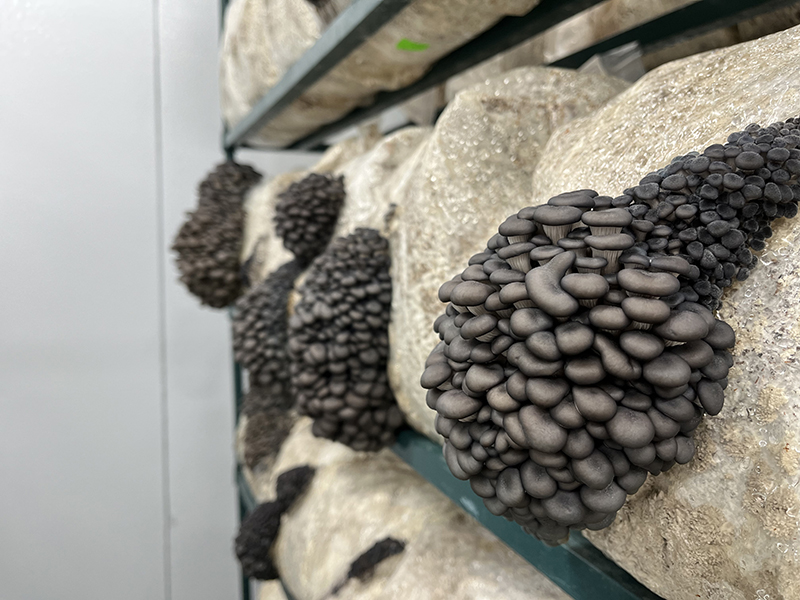
“You know, button mushrooms are fun; they're really durable, and they can kind of roll around and they're structurally OK,” he said. “But with an oyster mushroom, if you toss and turn it and move it too much ... its caps break, and you’ve ruined this otherwise very beautiful produce.”
Smallhold nestles its specialty mushrooms in recycled corrugated cardboard that includes a window to display the visually arresting fungi.
“We wanted to create packaging for our mushrooms that honored the sustainability and the beauty of what mushrooms do for the world,” Breihan said. “This is one of our early innovations, and compared to traditional conventional mushroom packaging, we've probably offset 50,000 pounds of plastic and 3 miles of Saran wrap.
“Yes, it costs more,” he continued. “But it does a lot more to honor the mushroom and present it in a way that gets customers excited and talking about these other sustainability issues.”
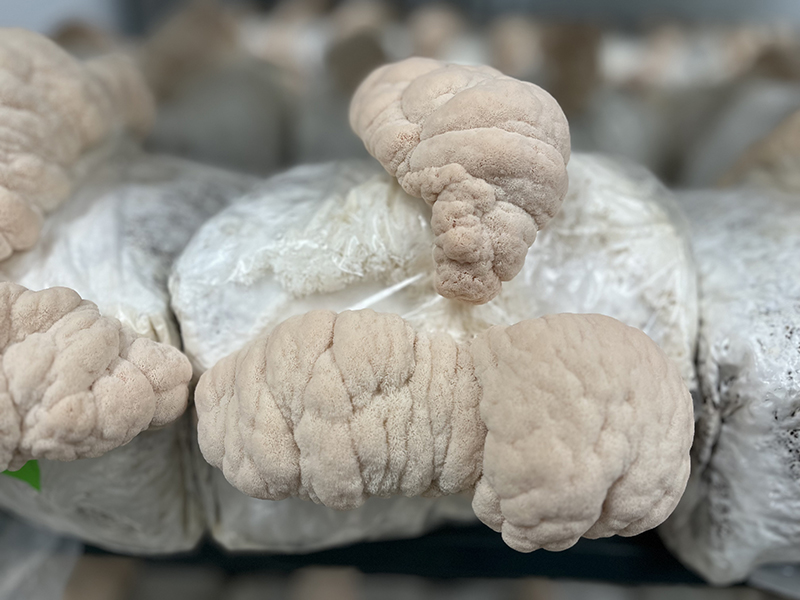
First certified organic, now B-Corp
Growing without pesticides, Smallhold initially earned USDA-certified organic status.
“You have to be doing the right thing along the whole supply chain for it to work. We’ve been careful about our partnerships, who we work with and how we source our substrates," Breihan said. “It’s a lot of work.”
Smallhold’s latest milestone — receiving B Corporation certification — wasn’t easy, but according to Breihan, because the company was already certified organic, it was already doing a lot of the environmental legwork. What’s more, Smallhold’s living wage and benefits earned them high marks in the people category of the comprehensive certification standard.
“But to be one of the really high-performing B Corps, you need to have something baked into your like business innovation that makes you impactful on an industry scale,” he said. “We're achieving that through our sustainability practices and packaging, our sourcing, local supply chains and organic certification, but there's still room to improve.”
Breihan would like to see a future where Smallhold is producing more value-added products to achieve zero waste in its operation. While the company partners with local organizations, including the Central Texas Mycological Society, to donate substrate and compost, he’d like to see more collaborations like this in the future.
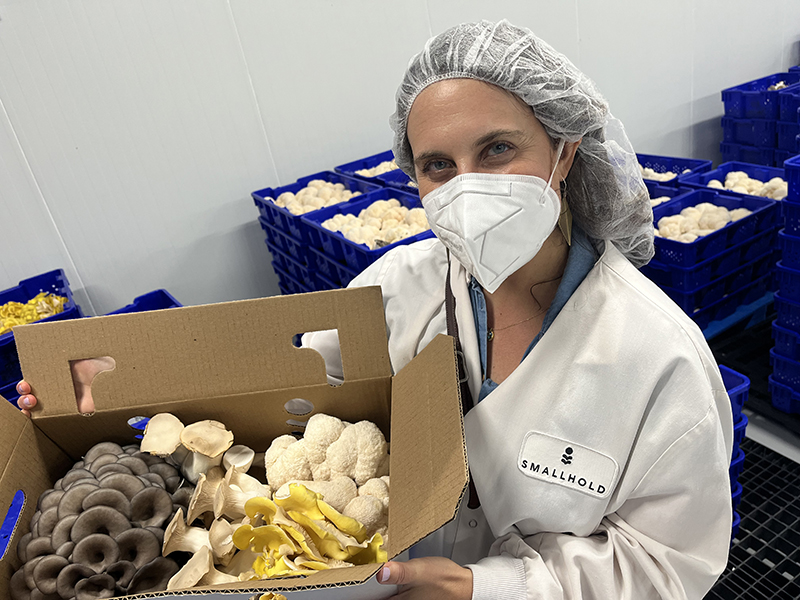
Growing operations in Austin
While Smallhold outgrew its first Austin facility, turning its original location into an R&D site, its footprint continues to expand in its current space.
“We’ve started expanding and doubling this farm … we're doubling capacity here,” Breihan said. “We also built another farm in L.A., and that farm is 34,000 square feet."
"We're growing fast," he added, smiling.
